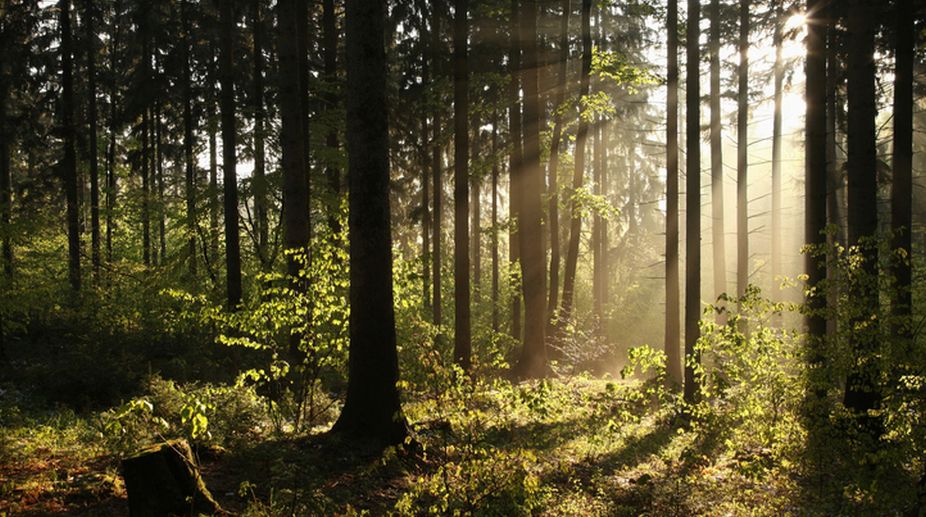The quaint hill destination of Basar at the centre of Arunachal Pradesh is a place that one often dreams about travelling to, but seldom does it find its way into your itinerary.
Home to the beautiful and friendly Galo tribe, Basar's villages are surrounded by wilderness and wrapped in myths. True to the spirit of the northeastern state that literally means the "Land of the Dawn-lit Mountains", Basar impresses travellers in more ways than one.
Advertisement
The journey to the mostly unexplored area in the state's West Siang district is not for the faint-hearted. A nearly five-hour-long drive through the hills awaits the tourists from Silapathar, the last prominent town in Assam before entering Arunachal Pradesh. The roads are serpentine and narrow, surrounded by dense forests, and at some points even non-existent due to landslides.
The cars negotiating the roads with steep slopes on one side and sharp mountains on the other, pass through many fascinating spots, including the breathtaking "Brahmaputra viewpoint". The journey, thrilling as well as perilous, gives one the feeling of travelling through a virgin land, out of the common man's reach.
However, once one reaches Basar, the serenity and charm of the place drive away all the fatigue of the arduous journey. One can get lost into the wild without worrying about a phone call or an internet connection. At nearly 1,800 feet, Basar gives a sense of seclusion and lets you to explore through the rich heritage and traditions of the region.
Basar is a census town. And according to Wiki, a census town "is one which is not statutorily notified and administered as a town, but nevertheless whose population has attained urban characteristics" such as a population in excess of 5,000 with "at least 75 per cent of main working population employed outside the agricultural sector".
Basar comprises four villages: Gori 1,2,3 and Hoi. The inhabitants belonging to the Riba, Basar, and Riram clans of the Galo community are mostly farmers who cultivate rice in the slash-and-burn method. Tourists can witness the famous Mopin, or the harvesting festival, during April.
The Mopin celebrations start off with hundreds of men and women dressed in white, gathering on the field to pray for a good harvest. They celebrate by participating in "Ponu" (a local dance form) to the rhythm of a verse recited by a "Nyibo" (narrator) and apply "Itei" or rice powder on each other to bring good luck.
"The women of our tribe are the heads of the families. They are also the head of the kitchen. So they decide about the crops to be harvested. The locals sacrifice pets, mostly "mithoons", a buffalo-like animal, to please the gods and goddesses before they start the cultivation," explained Sinal, a Galo woman who participated in the ritual.
Walking along the roads through the dense woodlands or by the pristine village river, one can hear the folklore of Abu Tani, the first ancestor of the tribe. The inhabitants follow a unique tradition of memorising the names of almost 20-30 ancestors. They add the last few letters of their forefather's name to their own to remember them easily. According to the inhabitants who take a lot of pride in this practice, it is a good way to establish mutual respect and desire for co-existence.
The place, bustling with rich tribal history, is slowly opening up to visitors. The tribes are warm and welcome the tourists with a smile. The local administration has taken steps like confining pets, building toilets in every household and making the villages open defecation free (ODF) so that people from outside can enjoy their stay.
According to the administrative head of a local NGO named Gumin Rego Kilaju (GRK) that organised the first-ever Basar Confluence this year, it is this unexplored beauty and culture that they want to share with the outside world.
"At Basar, we have a rich culture unexposed to the outside world. So we thought of a cultural exchange through this confluence programme," observed Jummar Basar, organising chairman of AGRK Basar Confluence, adding that they are focusing to make it a calendar event which would give the tourists a reason to rejoice and be a part of Basar's rich culture.
While appreciating the enigmatic beauty of Basar, one can also enjoy the true mix of culture in the region through the artist's residency programme organised by the NGO.
As the sun sets over the hills of Basar, the villagers sing songs reminiscing about the past or gather around a campfire in the empty fields. The day's activity ends well in advance for a city dweller as the remote area, in the far northeastern corner of the country, goes to sleep quiet early with a sense of aloofness and mystery in its heart.
(IANS)











